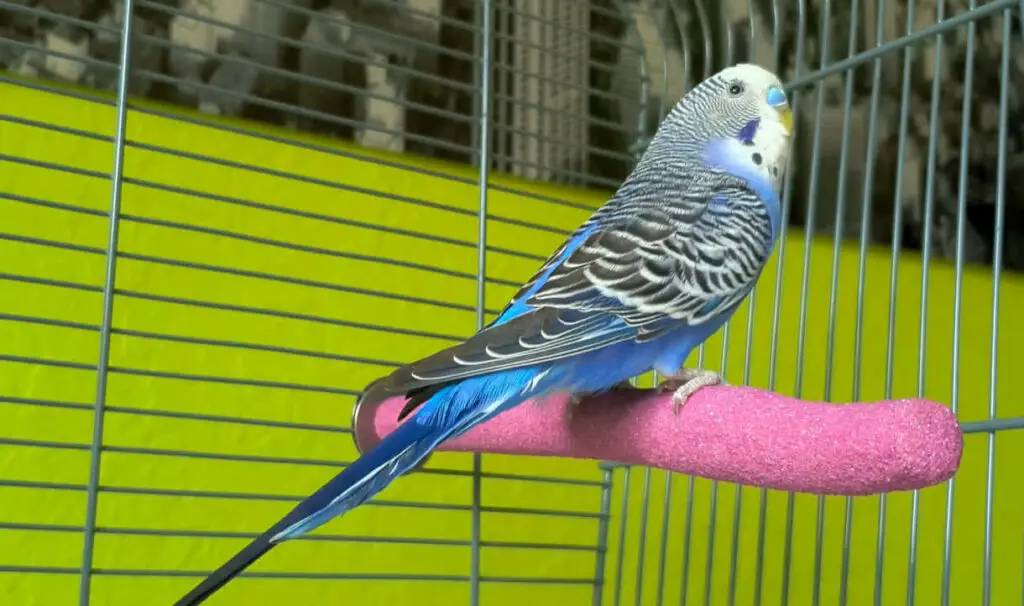When you find a cockatiel breathing heavy, it is easy to assume that something is not right.
After all, labored breathing is never a good sign of anything… Correct?
Well, there are a number of reasons why your cockatiel is breathing heavily. This is why it is important to understand the possible causes of this symptom and what you can do about it. Find out the common reasons why this happens and some things you can do to ensure your pet’s health and wellness.
Let’s get right into it.

Contents
Causes of A Cockatiel Breathing Heavy
What are the reasons behind a cockatiel breathing heavy?
There are certain causes of this symptom, and let’s take a look at these and what you can do about it.
1. Fungal infection
When your cockatiel is experiencing some labored breathing, it may be that it is suffering from aspergillus or a fungal infection that affects many birds. Usually, this happens when your pet has accidentally inhaled tiny spores or microbes wafting in the air, which then causes this upper respiratory infection.
If you suspect this condition, it is best to take your pet to the vet immediately. It is a case requiring urgent medical attention and would require some antifungal medication and antibiotics to help your cockatiel to recover.
Do take note that there are usually no symptoms evident unless the condition has gotten severe. But it is best to take note of other signs of an infection in your cockatiel such as tail bobbing combined with labored breathing. If you notice these signs, be sure to obtain immediate medical assistance for your pet.
It is also important to find a safe and secure location for your pet, so it will be spared from such conditions. A well-ventilated area is ideal, so it does not get damp while at the same time having access to sunshine.
2. Exposure to smoke
Just like with humans who inhale smoke, cockatiels tend to breathe heavily after inhaling heavy smoke whether from incense or cigarettes. Moreover, their lungs are more sensitive than a human’s, which is why these chemicals go quickly into their respiratory system and wreak havoc right away.
It is also worth noting that ash getting lodged into a bird’s lungs can result in aspergillus. This is why if smoke is usually present in your home, your pet is better off staying outside. As an alternative, you may want to put its cage in a different room where smoke does not enter.
Aside from the harsh smell of the smoke, there are certain toxic elements present in these things that your pet can smell. Incense smoke, for instance, contains toxins and ash that does not do any good to your pet’s health.
3. Teflon Toxicity
When you heat up Teflon, this releases numerous toxic gasses into the air, which is responsible for a bird’s heavy breathing. In fact, many birds die each year from toxicity caused by Teflon.
The thing about this material is that the coating begins to decompose when heated at over 600 degrees Fahrenheit. Hence, toxic gasses are released into the air, which can cause humans to get sick and birds to die.
What happens is that a cockatiel’s lungs will begin to hemorrhage, then get filled up with liquid, followed by its imminent death. Thus, it is advisable to stay away from Teflon cookware if you have a pet cockatiel at home. Better options for cookware would be ceramic or cast iron that are free from these harmful chemicals.
4. Breathing in toxic elements in cleaning supplies
If you use cleaning supplies containing certain ingredients such as vinegar and ammonia, your pet bird is at risk of some serious infections. For us humans, breathing these chemicals is enough to make your eyes water or cause you to cough and sneeze. Considering how sensitive a bird’s sense of smell is, it will most definitely react more to these components.
Hence, be sure to choose natural cleaning materials for your home that are not only safer for your pet but for your entire household, as well.
Understanding Heavy Breathing In Cockatiels
There are various respiratory ailments that can cause birds to breathe heavily. These include fungal infections, bacteria, and toxic chemicals in the air. It is best to have the symptoms diagnosed sooner than later before greater harm occurs inside your pet’s body.
When you notice that your pet is breathing heavily, you need to seek prompt medical attention from an avian doctor, so your bird will not have to suffer immensely from these fatal diseases.
In addition to heavy breathing, there are other symptoms that may be signs of serious problems with your cockatiel. These include a change in your pet’s voice, wheezing sounds, nasal discharge, coughing, and panting.
You may also observe your pet’s tail bobbing, which may mean nothing serious unless labored breathing is associated with it.
Certain infections that can be fatal to your pet include pasteurella, proteus, and chlamydophila. There are also elements in the air that can be quite toxic and can result in your bird’s death including insect repellents, smoke, ammonia and hairspray.
Moreover, things can get lodged into your pet’s throat that can cause them to have breathing difficulty including seeds, toys, and the like. So, it is best to have the condition diagnosed by a specialist to prevent further damage from taking place.
Read More: Common Reasons Behind The Cockatiel Tail Bobbing
Final Thoughts
A cockatiel breathing heavy can mean so many things. It may be a sign of an infection, or some foreign object stuck inside its throat, and something even more serious such as an exposure to toxic elements in the air, which can cause death.
With all these things in mind, it is best to have this symptom checked immediately by a vet to prevent things from taking a turn to the worst.

